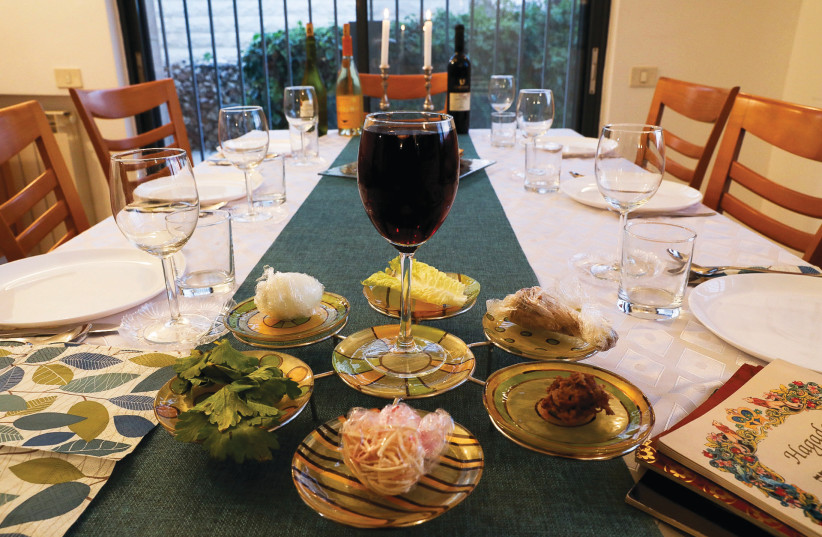With the confluence this week of Passover, Easter and Ramadan, it is worthwhile pondering what our wish should be in this year of worldwide chaos and increased violence in Israel this past week, as well. With political polarization rampant in so many Western democracies, seemingly out-of-control climate change and a crazed madman in Russia trying to bring the world to a third world war, the challenge to write something meaningful is daunting.
This past week, Jewish families gathered for the traditional Seder, Christians sat down to a family dinner on Easter Sunday and Muslims gather each night of Ramadan for their fast-breaking evening meal, Iftar. No doubt, there were and will be family members representing different political and religious views at all of these events and the holiday table could very well be a setting that pits siblings, parents and children, against each other – a microcosm of the conflict playing out all over the world. Rabbi Avi Weiss, rabbi emeritus of the Hebrew Institute of Riverdale in New York, suggests that as a means to inspire civil discussion, we should begin the festive meals by adopting the prayer recited by some from the third book of the Bible, Leviticus: “Behold, I accept upon myself the commandment of the Lord to love my neighbor as myself.”
“Behold, I accept upon myself the commandment of the Lord to love my neighbor as myself.”
A prayer from the Book of Leviticus
He goes on to say that being part of the human family does not mean that we agree on everything. What it does mean is that when we disagree, we should do so agreeably. Those we oppose should not be viewed as the enemy but as family. We must be absolutely uncompromising in implementing God’s commandment to love our fellow human beings. In order for us to achieve this while staying true to our individual principles, an ethic of disagreement needs to be agreed upon.
What are Rabbi Avi Weiss's suggestions?
He has some modest suggestions:
- Language must be used with care. While a word is a word and a deed is a deed, words lead to deeds.
- Dissent is acceptable. Delegitimization is not. No purpose is served in invalidating the other.
- The Right and Left should recognize that it has no monopoly on loving a country or its values.
- When disagreeing, we should not malign the motives of others.
- As difficult as it is sometimes to imagine, each side has what to learn from the other.

This is not an easy task. Yet the future of civilization itself may very well depend on our ability to disagree without being disagreeable. Pugnacity may be a natural human reaction to dissent but left unchecked, it spells disaster for humankind.
Let us hope that the lesson of this season will be well learned by all of us so that we can enjoy the Lord’s bounty while recognizing the value each of us brings to the table.
May this holiday season, which has sadly begun here in Israel with rocket fire from both Lebanon and Gaza along with disturbances at the al-Aqsa mosque, be a blessing for all of us that we may merit the enjoyment of long lives of health and happiness in peace and security.
The writer is a 39-year resident of Jerusalem and the CEO of Atid EDI Ltd., an international business development consultancy. He is a former national president of the Association of Americans and Canadians in Israel, a board member of the Israel-America Chamber of Commerce and the chair of the Executive Committee of Congregation Ohel Nechama in Jerusalem.
